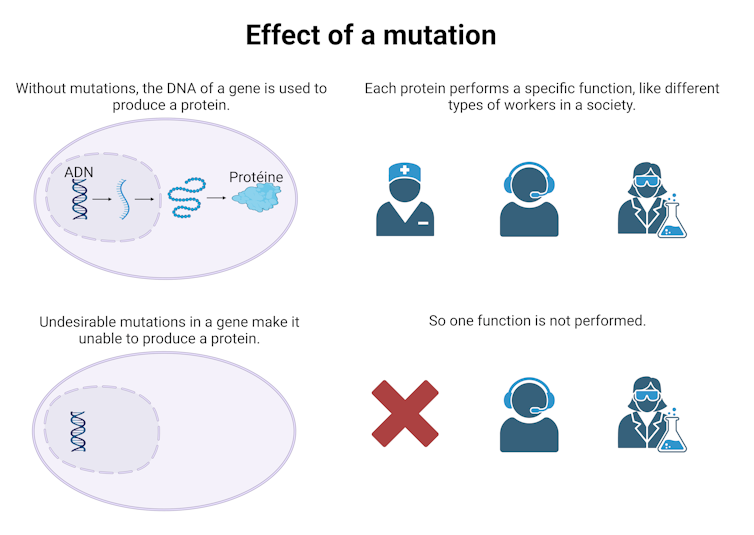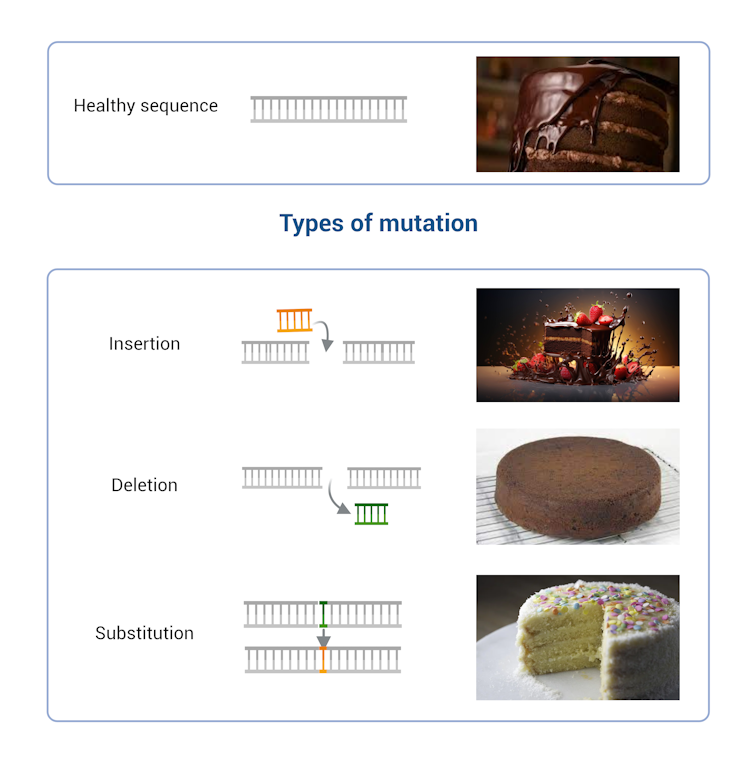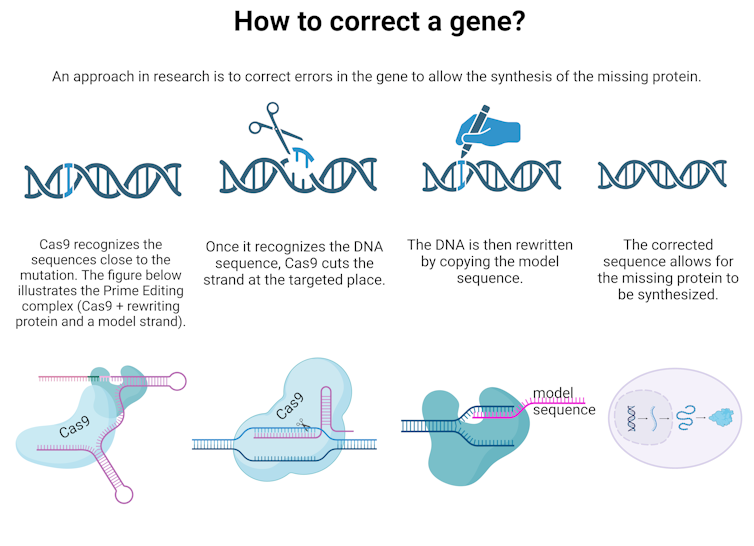Michael Cohen spotted entering the D.A.'s office as Stormy Daniels hush money trial nears – Raw Story
Sarah Burris is a long-time veteran of political campaigns, having worked as a fundraiser and media director across the United States. She transitioned into reporting while working for Rock the Vote, Future Majority and Wiretap Magazine, covering the Millennial Generation's perspective during the presidential elections. As a political writer, Burris has had bylines at CNN, Salon.com, BNR, and AlterNet and serves as a senior digital editor for RawStory.com.
Women in Media Cente
Former Donald Trump lawyer Michael Cohen was spotted walking into the offices of Manhattan District Attorney Alvin Bragg late last week, a source present there — who requested their name be withheld to speak freely about the scene — told Raw Story.
Cohen's presence at Bragg's office comes amid a swirl of legal action among Donald Trump's four separate criminal trials. And it further fuels speculation that the 34-count Stormy Daniels hush money case, in which Bragg alleges Trump falsified business records, will leapfrog the other cases and go first.
At its core, the hush money case — with its salacious accusations that Trump paid off adult film star Daniels to keep their sexual affair quiet — is about election interference during the 2016 campaign. Cohen has now spoken to New York Attorney General Letitia James and D.A. Bragg several times.
ALSO READ: Alina Habba is persona non grata at her Pennsylvania law school
On Friday, U.S. District Judge Tanya Chutkan pulled the March 4 trial date for Trump's 2020 election interference case off her court's calendar. A federal appeals court is considering Trump's assertion that he is immune from charges, brought by Justice Department special counsel Jack Smith, that he worked to illegally overturn the results of the 2020 presidential election. It's a ruling that, when it comes, is expected to be appealed to the U.S. Supreme Court.
Legal analyst Norm Eisen told CNN on Sunday that he expects that while this federal-level election interference case will likely unfold sometime before the 2024 election, the Supreme Court could add further delays. It would be yet another pause that would benefit Trump's ongoing requests to hold off all trials until after the 2024 election, in which he is all but certain to be the Republican presidential nominee running against President Joe Biden in a rematch of their 2020 race.
ALSO READ: 0-for-1,668: Senators extend their streak of never punishing other senators
Meanwhile in Florida, Trump's Mar-a-Lago classified documents case, over which U.S. District Judge Aileen Cannon is presiding, is delayed with slews of protracted hearings. It's something that former FBI general counsel Andrew Weissmann called "unjustifiable."
That case isn't likely to see a courtroom for some time. Whatever the decision there, it is also expected to be appealed.
And in Georgia, allies of Trump dug up information on District Attorney Fani Willis that has allowed for delays in that case as well. While Willis isn't likely to step down from the case, added hearings contribute to a timeline that could mean delays for the ultimate trial date.
It all likely leaves the Bragg case at the front of the line for the time being.
Trump, who faces 91 felony counts across all four cases, says he is innocent.
Country music star Toby Keith, celebrated in Middle America for his patriotic fervor and songs extolling the pleasures of drinking, has passed away aged 62, a statement on his social media account said Tuesday.
"Toby Keith passed peacefully last night on February 5th surrounded by his family. He fought his fight with grace and courage," a statement posted to Keith's account on X, formerly Twitter, stated.
The Oklahoma-born singer, who was a roughneck in the oil fields of his home state before breaking into country in the 1990s, had been diagnosed with stomach cancer in 2022.
Keith was a controversial figure who often raised eyebrows for the intensity of his nationalist sentiments, with detractors calling him jingoistic.
"Courtesy of the Red, White and Blue (The Angry American)," released in the aftermath of the September 11 attacks, memorably has the line, "We'll put a boot in your ass / It's the American way."
In "The Taliban Song," Keith describes ordinary Afghans praying for US forces to drive out the foreign fighters of the Taliban and Al-Qaeda — which was led by the Saudi-born Osama bin Laden. In the chorus, Keith sings, "Ride, camel, ride!"
Usually clad in a cowboy hat, he also had a long list of songs exploring the cathartic effects of alcohol including "I Love This Bar," "Whiskey Girl," "Get Drunk and Be Somebody," "Drinks After Work" and "Drunk Americans."
"Beer For My Horses," one of Keith's best-known songs, sings of getting tough on crime and corruption.
He was also known for his feuds and grudges, including against The Chicks lead singer Natalie Maines — touring with a doctored photo of her and Saddam Hussein after her comments against the US invasion of Iraq.
Keith was the most famous performer at former US president Donald Trump's inauguration in 2017, though he also played at events for Trump's predecessor, Barack Obama.
He frequently performed for US troops overseas, often raising his middle finger in the air in an unsubtle message to foreign adversaries.
Later in 2017 he played a male-only concert in Saudi Arabia to mark a Trump visit there — an unlikely venue for a star more often seen packing arenas in the US heartland.
© Agence France-Presse
A right-wing coalition that's been laying the policy groundwork for another Trump presidency has developed a plan to further privatize Medicare by making fraud-riddled Medicare Advantage "the default enrollment option" for newly eligible beneficiaries.
The plan, highlighted Monday by Rolling Stone's Andrew Perez, is outlined about halfway through Project 2025's 920-page playbook for the first six months of a conservative presidency.
Republican administrations and right-wing groups have long advocated funneling people who are newly eligible for Medicare into Medicare Advantage plans, which are funded by the federal government and run by for-profit insurers. During his first White House term, former President Donald Trump took steps to actively encourage seniors to choose Medicare Advantage plans over traditional Medicare and expanded the benefits that the privately run plans are allowed to offer.
Those efforts have had an impact. As Perez noted, "Last year, for the first time ever, a majority of Americans eligible for Medicare were on privatized Medicare Advantage plans."
"If Republicans win the presidential race this year," he wrote, "the push to fully privatize Medicare, the government health insurance program for seniors and people with disabilities, will only intensify."
Every year, new and existing Medicare recipients have an opportunity to enroll in Medicare Advantage plans, which engage in aggressive and often highly deceptive advertising practices to lure seniors who are often seeking out benefits not currently offered by traditional Medicare, such as vision and dental care.
"Donald Trump and his MAGA Republican cronies plan to totally privatize Medicare if they win in November's election."
Once enrolled in Medicare Advantage plans—which offer limited networks of doctors and overbill the government to the tune of $140 billion a year—patients often feel trapped and are subjected to care denials and other deep flaws in the program that have drawn growing attention from lawmakers in recent years.
If Project 2025, which is led by the right-wing Heritage Foundation, gets its way, Medicare Advantage providers would be given even greater power over the critical government insurance program. The Trump administration embraced many of the Heritage Foundation's policy recommendations during its first year in power.
"Donald Trump and his MAGA Republican cronies plan to totally privatize Medicare if they win in November's election," the progressive advocacy group Social Security Works wrote in response to Rolling Stone's reporting. "Hell no. Hands off our earned benefits."
Philip Verhoef, president of Physicians for a National Health Program, told Rolling Stone that Project 2025's plan to make Medicare Advantage the default enrollment option would be "disastrous."
"To do so would be really just a clear handout to the private insurance industry," Verhoef said.
Project 2025 has said that it doesn't "speak for any presidential candidate," but Trump's reelection campaign has relied on parts of the coalition's proposed agenda for second-term planning.
Trump's team has faced backlash over some of Project 2025's work, including draft executive orders that would use the Insurrection Act to deploy the U.S. military against demonstrators. As The Washington Postreported in December, Trump campaign senior adviser Susie Wiles complained privately to Project 2025's director and asked the coalition to "stop promoting its work to reporters."
Seth Schuster, a spokesperson for President Joe Biden's reelection campaign, warned in a statement Monday that "if Donald Trump wins this November, he and Republicans will continue their push to end Medicare as we know it for millions of Americans."
"Trump will leave millions of seniors with fewer benefits and less access to doctors—all to benefit his big insurance donors," said Schuster. "In Trump's America, the special interests win and seniors and working families lose. Worse care, broken promises, and higher costs—that's Trump's plan for seniors and working families."
In addition to making Medicare Advantage the default enrollment option for Medicare, Project 2025 is calling for the revival of the Global and Professional Direct Contracting Model, a Medicare privatization scheme that the Biden administration rebranded as ACO REACH and slightly modified—to the dismay of physicians, healthcare campaigners, and progressive lawmakers who called for the repeal of the Trump-era pilot program.
I have always been fascinated by genetics, a branch of biology that helps explain everything from the striking resemblance between different members of a family to the fact that strawberry plants are frost-resistant. It’s an impressive field!
I also have a personal connection to genetics. Growing up, I learned that members of my family had a form of muscular dystrophy called dysferlinopathy. I watched as my mother gradually lost the ability to climb stairs and had to use a cane, then a walker, and finally a wheelchair to get around. Her leg muscles were less and less able to repair themselves and became weaker with time.
My parents explained to me that all these changes were due to the error of a single letter among the billions of letters in a long DNA sequence. This error prevents the production of the protein responsible for repairing arm and leg muscles.
Today, I am a doctoral research student in molecular medicine. I study the treatment of hereditary diseases in order to be able to help families like my own. In this article, I will demystify hereditary diseases and show what research is being carried out to treat them.
Let’s start by imagining DNA as a recipe book. Each gene represents a different recipe. The page with the chocolate cake recipe has a nice picture, but there is some information missing. The recipe says to preheat the oven and measure the flour, but the rest of the page is torn. So it is impossible to make the cake. We go ahead and serve our meal made from all the other recipes, but there is no chocolate cake even though this is a particularly important part of the meal.
The same is true for hereditary diseases. In this case, the body can make all the proteins it needs except one. In dysferlinopathy, which affects my family, the missing recipe is the protein that repairs the muscles of the arms and legs. Each hereditary disease has its own damaged page in its recipe book.
Effects of a mutation. (Camille Bouchard), Fourni par l'auteur
To be precise, an error in the DNA is called a mutation. There are different types of mutations. Some are caused by adding letters, like adding an ingredient to the recipe. This addition could lead to a delicious chocolate cake with strawberries, or to a cake that is no longer edible because we added motor oil to it.
Other mutations are caused by the removal (or elimination) of one or more letters (or ingredients), or by substitutions that replace one letter with another. All of these modifications can lead to favourable or non-impactful changes, such as the appearance of the first blue eyes in evolution, or the ability to breathe outside of water. But these modifications can also bring about unfavourable results, such as a hereditary disease or cancer.
There are different types of mutations. (Camille Bouchard), Fourni par l'auteur
From a young age, I understood that my mother was sick due to the error of a gene, but that I would not develop the disease because my father did not have the same error. This is called a recessive disease, since there must be an error in the gene of each of the two parents in order for the disease to manifest. Other hereditary diseases are dominant, meaning that a mutation in the DNA passed down from just one parent is enough to impair the production of a protein.
As part of my research, I look at the DNA sequence of each dysferlinopathy patient to see where the error is.
To try to correct it, I use Prime editing, a technique which makes it possible to cut the DNA near the mutation and rewrite the sequence correctly. Prime editing is a version of CRISPR-Cas9, a technique that allows DNA to be cut at a particular location.
Prime editing uses a protein called Cas9, which occurs naturally in bacteria. This protein allows bacteria to destroy the DNA sequences of viruses that could infect them. The mission of the Cas9 protein is to recognize a sequence and cut it.
When we use Cas9 in our human cells, we attach it to another protein, which rewrites the DNA sequence based on a template. In other words, we give the cell an error-free sequence so that it can go ahead and manufacture the protein on its own. It’s a bit like recovering the original page of the recipe book so you can finally serve the chocolate cake.
So why aren’t we hearing about Prime editing, when it could be used to treat a variety of diseases? Because the technology is not yet fully developed. At the moment we are able to repair DNA directly in cells in the laboratory, but we lack the means to deliver the two large proteins (Cas9 and the one that rewrites) to the cells to be treated (for example, to the centre of the affected muscles).
Prime editing is a technique being studied to correct mutations in different genes. (Camille Bouchard), Fourni par l'auteur
In other words, we have found the chocolate cake recipe, but it’s written on a page that is too large to fit in an email or put in an envelope. Many laboratories, including mine, are looking for an efficient and safe vehicle that will be able to deliver these proteins.![]()
Camille Bouchard, Étudiante au doctorat en médecine moléculaire (correction génétique de maladies héréditaires), Université Laval
This article is republished from The Conversation under a Creative Commons license. Read the original article.
Copyright © 2024 Raw Story Media, Inc. PO Box 21050, Washington, D.C. 20009 | Masthead | Privacy Policy | Manage Preferences | Debug Logs
For corrections contact corrections@rawstory.com , for support contact support@rawstory.com .